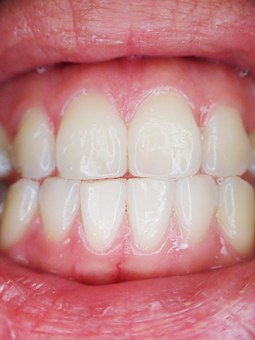Periodontal disease, also known as gum disease, is a common condition that affects millions of people worldwide. It begins with inflammation of the gums, which can progress to more severe stages if left untreated, potentially leading to tooth loss. However, the consequences of periodontal disease extend far beyond the mouth. Research has shown that gum disease is linked to several systemic health conditions, making it crucial not only for oral health but for overall health to address and treat gum disease early.
What Is Periodontal Disease?
Periodontal disease is an infection of the gums and the structures supporting the teeth. It starts with gingivitis, the mildest form of gum disease, which causes red, swollen gums that may bleed when brushing or flossing. If gingivitis is not treated, it can progress to periodontitis, where the infection spreads deeper into the supporting bone structures. This stage can lead to gum recession, pocket formation between the gums and teeth, and ultimately, tooth loss.
The Systemic Impact of Periodontal Disease
While periodontal disease may seem like just a dental issue, its effects can extend to other areas of the body. Research has revealed strong links between gum disease and several serious health conditions. Let’s explore some of the key connections:
1. Heart Disease
Heart disease is one of the most concerning health conditions linked to periodontal disease. Several studies have shown that individuals with periodontal disease are at a higher risk for developing heart disease, including coronary artery disease. The connection between gum disease and heart disease is thought to be related to inflammation. The bacteria in infected gums can enter the bloodstream and trigger an inflammatory response throughout the body. This inflammation can contribute to the buildup of plaque in the arteries, a major risk factor for heart disease and stroke.
2. Diabetes
There is a two-way relationship between gum disease and diabetes. People with diabetes are more likely to develop periodontal disease because high blood sugar levels weaken the immune system, making it harder for the body to fight infections, including those in the gums. Conversely, untreated gum disease can make it more difficult to manage diabetes. The inflammation caused by gum disease can lead to insulin resistance, which can raise blood sugar levels, creating a vicious cycle. Effective management of periodontal disease is essential for individuals with diabetes to help maintain overall health.
3. Respiratory Infections
Infections in the mouth can have a direct impact on the respiratory system. The bacteria from infected gums can be inhaled into the lungs, leading to respiratory conditions such as pneumonia and chronic obstructive pulmonary disease (COPD). This is particularly concerning for individuals with compromised immune systems or pre-existing lung conditions. The link between gum disease and respiratory health underscores the importance of good oral hygiene and regular dental checkups to reduce the risk of bacterial transmission to the lungs.
4. Pregnancy Complications
For pregnant women, periodontal disease can pose significant risks. Studies have shown that gum disease can increase the likelihood of premature birth, low birth weight, and even preeclampsia (a pregnancy complication characterized by high blood pressure). The inflammation associated with periodontal disease is thought to trigger systemic effects that can interfere with the normal progression of pregnancy. Pregnant women should be especially vigilant about their oral health and seek treatment for any signs of gum disease to protect both their health and the health of their baby.
5. Alzheimer’s Disease
Recent research has suggested a link between periodontal disease and Alzheimer’s disease. While the exact mechanisms are still being studied, scientists believe that the bacteria involved in gum disease may play a role in the development or progression of Alzheimer’s disease. One theory is that the bacteria can enter the brain via the bloodstream and trigger an inflammatory response, contributing to the degeneration of brain tissue. More research is needed in this area, but early treatment of periodontal disease may offer some protection against cognitive decline.
Why Treating Periodontal Disease Is Crucial
The connections between gum disease and systemic health make it clear that treating periodontal disease should not be viewed as just an oral health concern. It’s an integral part of overall wellness. Here are some key reasons why treating gum disease is crucial for your health:
1. Prevent Tooth Loss
At its most severe, untreated periodontal disease can result in tooth loss. This can affect not only your smile but your ability to speak and eat properly, impacting your quality of life. Early treatment can prevent the progression of the disease, saving your teeth and preserving your oral function.
2. Reduce Systemic Health Risks
As discussed, periodontal disease is linked to numerous systemic conditions, including heart disease, diabetes, and respiratory infections. Treating gum disease can help reduce the overall burden of inflammation in the body, lowering the risk of these serious health issues.
3. Improve Overall Well-Being
When gum disease is managed and treated effectively, individuals often report feeling better overall. By addressing gum disease, you can reduce pain, discomfort, and the embarrassment of bleeding gums or bad breath, leading to a better quality of life.
4. Improve Pregnancy Outcomes
For pregnant women, treating periodontal disease can help reduce the risk of complications such as preterm birth and low birth weight. Early detection and treatment during pregnancy can protect both the mother’s and baby’s health.
How Castle Hills Dentistry Can Help
At Castle Hills Dentistry, we understand the importance of early detection and treatment of periodontal disease. Our experienced team of dental professionals provides comprehensive periodontal care, from routine cleanings and screenings to advanced treatments such as scaling and root planing for more severe cases.
If you’re experiencing symptoms of gum disease, such as bleeding gums, bad breath, or tooth sensitivity, it’s essential to schedule a visit to Castle Hills Dentistry. We offer personalized care and treatment options to help restore your oral health and prevent the potential systemic effects of untreated periodontal disease.
Conclusion
Periodontal disease is not just a dental problem – it’s a whole-body concern. The links between gum disease and systemic health conditions, such as heart disease, diabetes, and pregnancy complications, highlight the importance of seeking treatment early. At Castle Hills Dentistry, we are committed to helping our patients achieve optimal oral health, not just for a beautiful smile, but for their overall well-being. Regular dental checkups, proper oral hygiene, and prompt treatment of gum disease are essential steps in preventing and managing the far-reaching effects of periodontal disease. Don’t wait until it’s too late – take action today to protect your health for the future.



